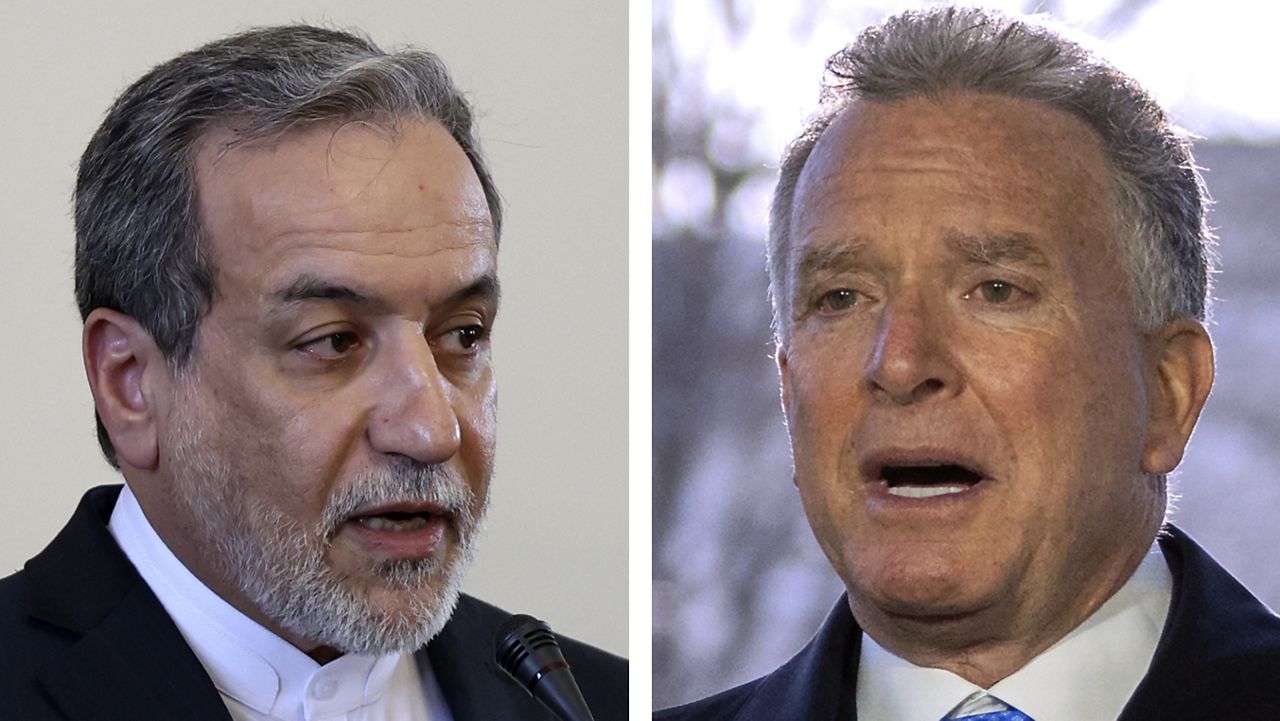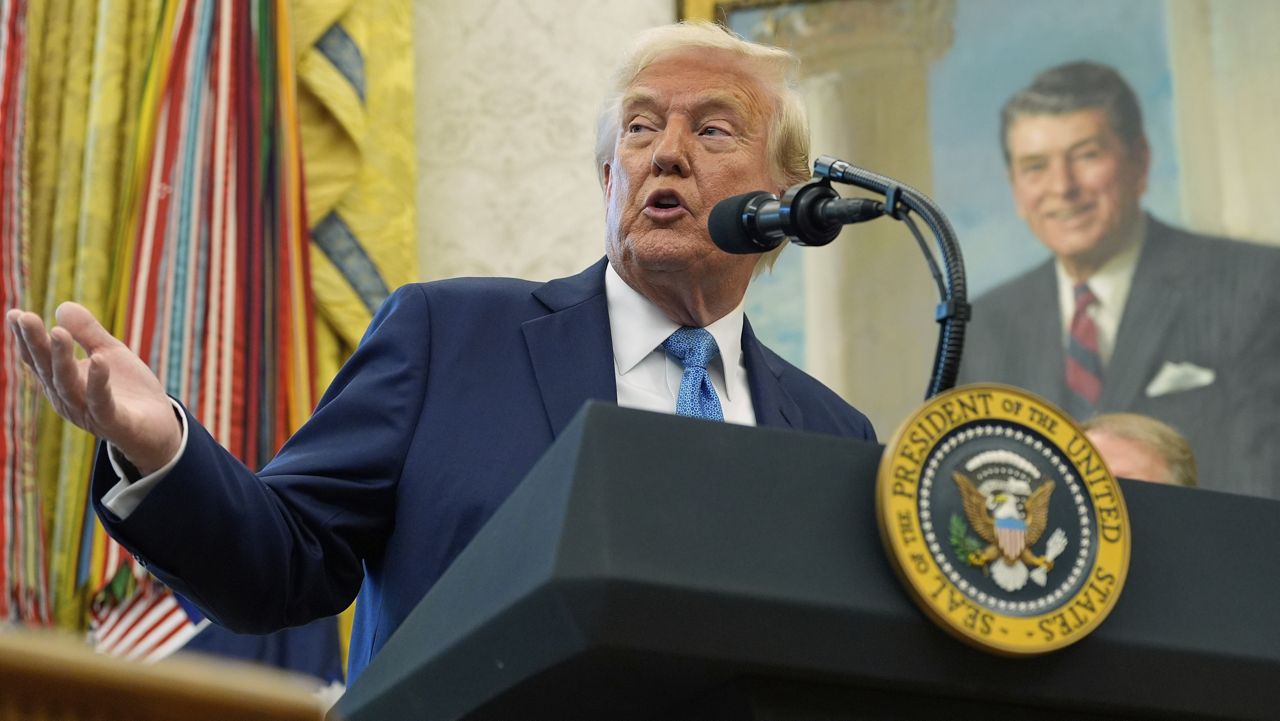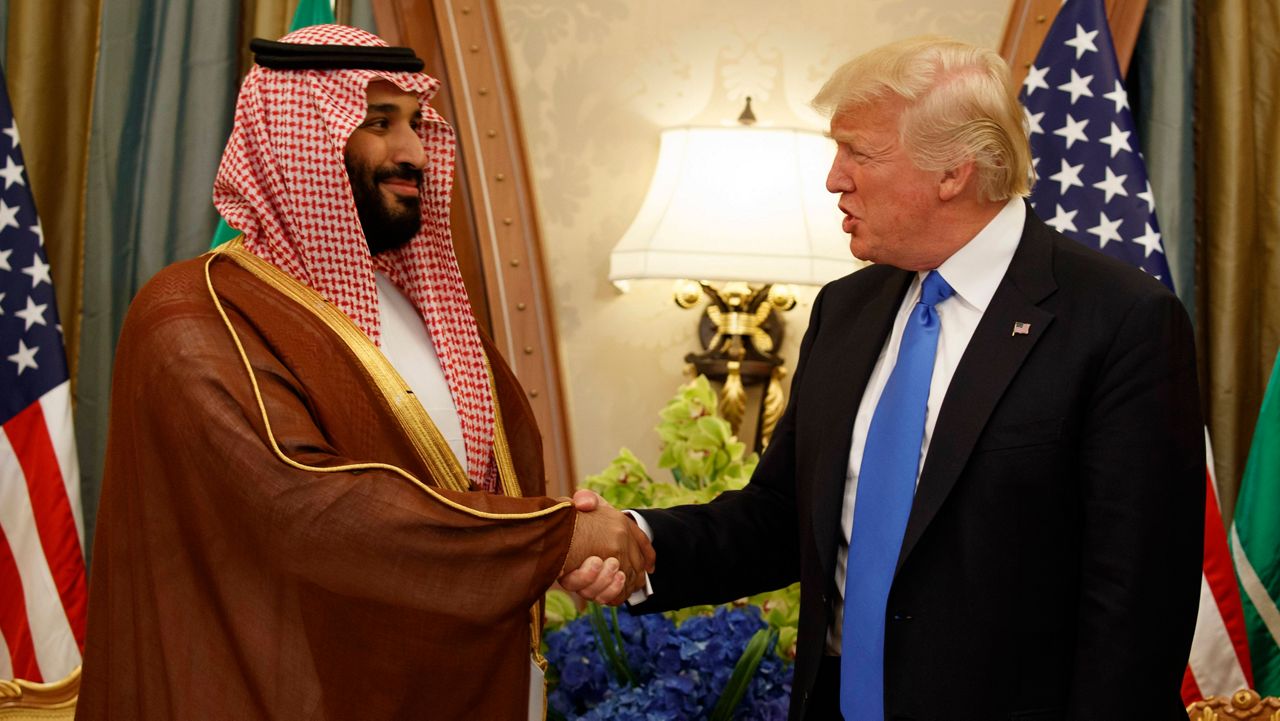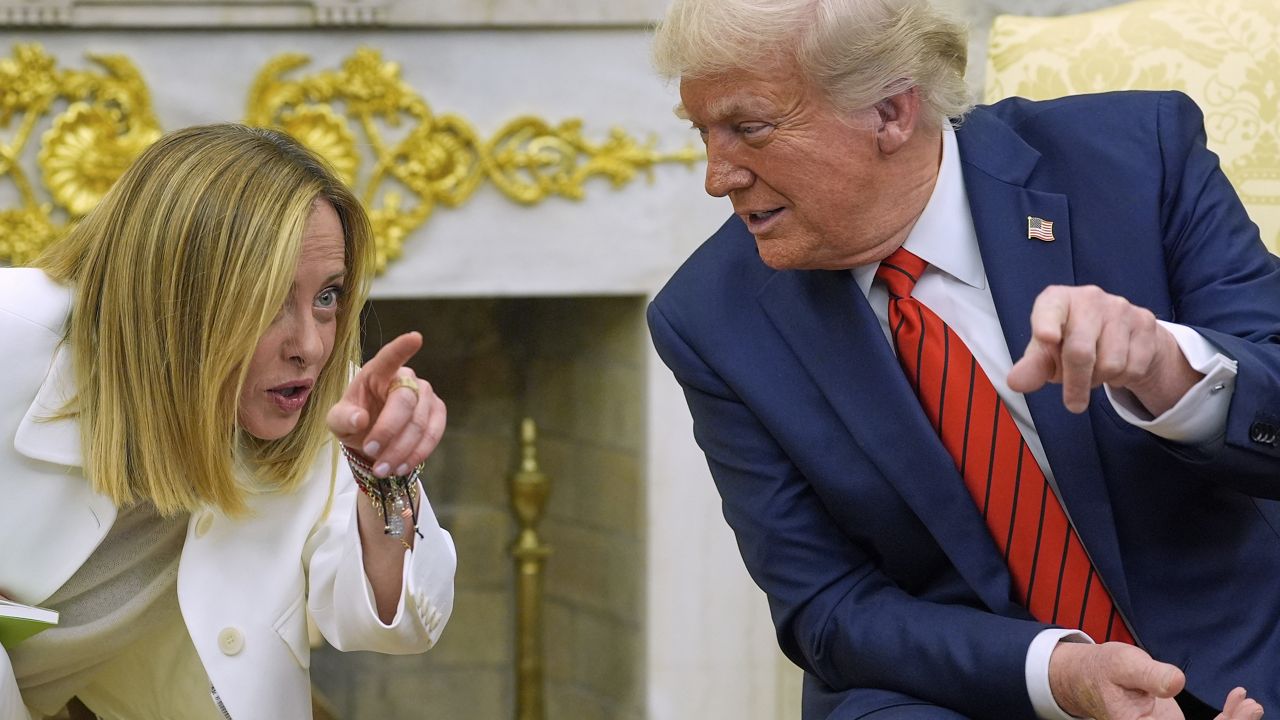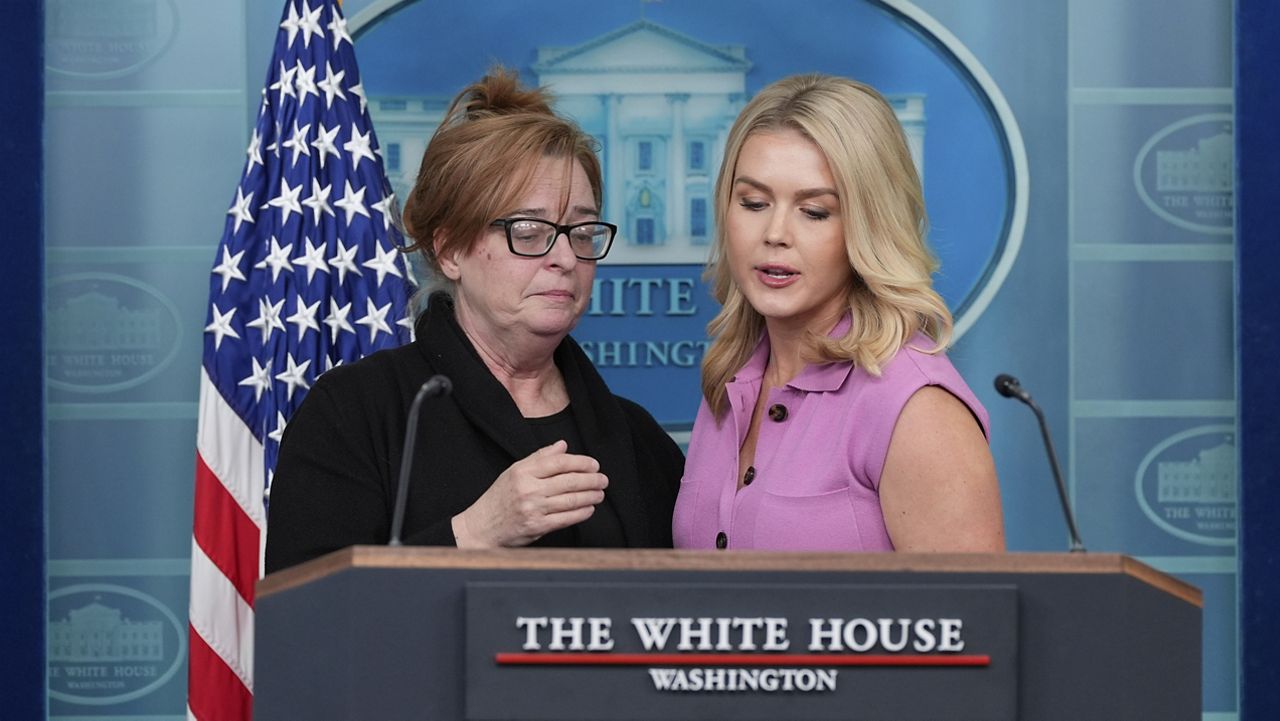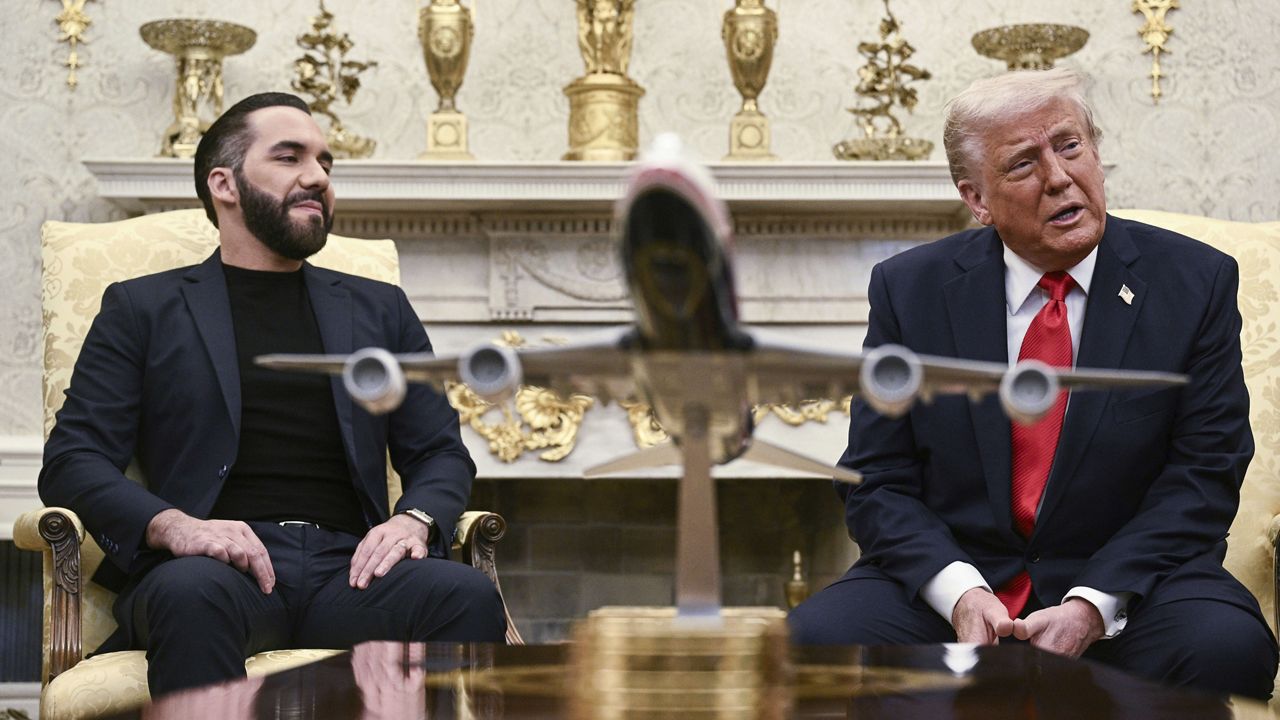WASHINGTON — Officials for the U.S. and Iran are set to meet in Oman on Saturday as part of a renewed push for diplomacy announced by President Donald Trump this week as he seeks to ensure Tehran does not obtain a nuclear weapon.
Addressing reporters at Friday’s news briefing, White House press secretary Karoline Leavitt insisted the talks would be “direct” despite recent confusion around conflicting statements from each side. She stressed the overriding goal of the new push is to halt Iran’s ability to have a nuclear weapon, noting she had just spoken to the president about the matter the previous night.
“The president believes in diplomacy, direct talks, talking directly in the same room in order to achieve that goal,” Leavitt said. “But he's made it very clear to the Iranians — and his national security team will as well — that all options are ... on the table, and Iran has a choice to make.”
In an op-ed in The Washington Post this week, Iran's minister of foreign affairs, Seyed Abbas Araghchi, repeatedly referred to this weekend’s conversation as “indirect." Esmaeil Baqaei, a spokesperson for Araghchi, said in a post on X on Friday that Tehran is “giving diplomacy a genuine chance.”
Such a chance, he added, was despite “prevailing confrontational hoopla” from the U.S.
Trump this week surprised many when he used the press portion of an Oval Office meeting with Israeli Prime Minister Benjamin Netanyahu to announce that the U.S. is starting direct talks with Iran with a “very big meeting” set to take place Saturday. His special envoy to the Middle East, Steve Witkoff — who stopped in Russia on Friday for “direct communications” with the Kremlin and President Vladimir Putin, according to Leavitt — will represent the U.S. in the talks with the Iranians.
In the meeting with Netanyahu on Monday, Trump — who pulled the U.S. out of the Obama-era Iran nuclear deal during his first term in the White House — insisted Tehran could not have a nuclear weapon and added the country would be in “great danger” should the conversations not amount to anything. Netanyahu, who has sought to take a hard line when it comes to the fellow Middle East country and praised Trump’s withdrawal from the nuclear deal, echoed the sentiment about a nuclear weapon.
The 2015 deal sought to put limitations on Iran’s nuclear program in exchange for sanctions relief.
Trump later said he wants Iran to be “great” but noted U.S. military action against the country was possible if talks do not go well. He said Israel would lead such a potential effort.
“If it requires military, we’re going to have military,” Trump said. "Israel will obviously be very much involved in that — they’ll be the leader of that. But nobody leads us, but we do what we want to do."
The president did not give a time frame for how long he would allow talks to go on before considering military action, saying it would, in part, be based on a “feeling” of how things were going.
Trump has sought to present a tough front when it comes to Iran since the president’s return to office, releasing a “maximum pressure” plan.
Ahead of the talks, the administration announced multiple rounds of new sanctions targeting Iran, including entities and people supporting its nuclear program and others involved in Iranian petroleum trade.
The administration has also sought to crack down on Iranian-backed groups in the region, launching attacks on Houthi targets in Yemen last month in a show of force.
In his op-ed in The Washington Post, Iran’s minister of foreign affairs directly cited the administration’s “maximum pressure” policy as helping foster Tehran’s “wall of mistrust” and the “serious doubts” it has about U.S. intentions.
Nonetheless, Leavitt on Friday did not hold back in expressing the president’s view of this weekend’s talks.
“You can agree to President Trump’s demand, or there will be all hell to pay,” she said. “And that’s how the president feels.”





